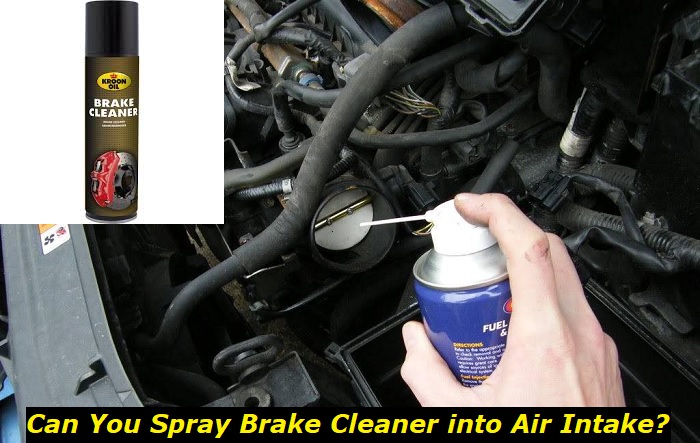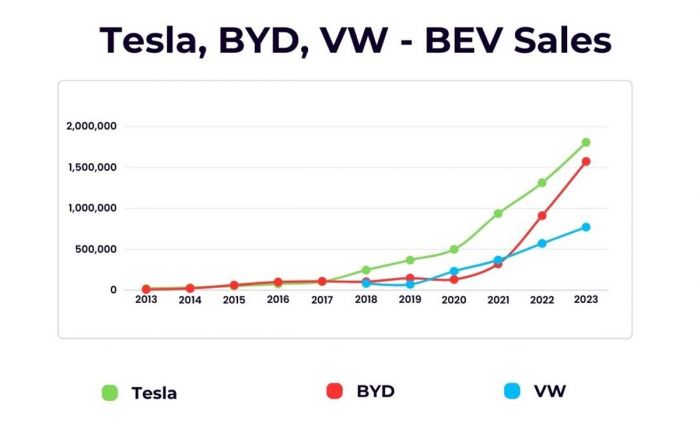Consistent and frequent engine maintenance is essential if you want to make the most out of your car. However, proper car maintenance isn't cheap which is why some of us are always on the lookout for various DYI engine maintenance life hacks.
Throttle cleaning additives highlights
- Efficiency:good if used correctly
- Availability:limited number of products
- Average price: $45
- Way to use:spray into the throttle
- DIY use:yes, butmaybe complicated
- Experts' advice:mostly positive advice
- Independent testing:a lot of positive testing
- Consequences:injector damage ifused incorrectly, exhaust system damage, valve damage

Spraying Brake Cleaner into Air Intake: Any Concerns?
Yes, there are multiple concerns to think about if you plan on spraying brake cleaner into the air intake. For starters, brake cleaner is often highly flammable which means that it is going to combust once it hits the inside of the engine.
This is bound to damage pretty much everything made out of plastic and rubber. Secondly, brake cleaner can also disrupt your air-to-fuel ratio which is going to create performance and efficiency problems while also potentially voiding your warranty.
Therefore, be sure to not use brake cleaner as an engine cleaner as you should use dedicated engine cleaners exclusively.
What Happens if You Spray Brake Cleaner Into Air Intake?
- Internal Engine Damage - As brake cleaner is an aggressive solvent designed to dissolve stubborn grease and oil deposits, it is bound to damage/degrade internal engine components such as sensors, plastic bits, hoses, gaskets, and other rubbery materials.
- Disrupt the Air-to-Fuel Ratio - All engines are equipped with state-of-the-art ECUs which control various essential engine metrics such as the air-to-fuel ratio, combustion, fueling, etc. If you spray brake cleaner into the intake, your ECU won't be able to control the ratio it is going to interfere.
- Engine Misfiring/Backfiring - As mentioned in the beginning, most brake cleaner compounds are highly flammable which means that they are going to combust once they reach the combustion chamber. This can cause a whole load of damage to various engine bits, the exhaust system, the catalytic converter, and the rest of the powertrain.
- Voids your Warranty - If your car breaks down and your dealer figures out you've been using brake cleaner to clean your engine, chances are that your warranty is going to be voided immediately.
What Can I Use Instead of Brake Cleaner?
Ideally, the only thing you should use is an engine-specific cleaner or fuel additive that has been approved by your manufacturer and has a stellar track record of actually helping your engine instead of choking it.
As these are very difficult to find, we suggest that you should leave these tasks to a professional. However, if you are adamant about finding an engine cleaner you can use yourself, you should first consider a proper mass airflow sensor cleaner for MAF sensor cleaning as it is known to not leave any residue after use.
Some say that using throttle body cleaners is also a good idea as these are specifically formulated for this purpose. These are usually designed to clean carbon deposits off the engine walls without causing any damage to any powertrain components.
Isopropyl alcohol can potentially be used for cleaning the intake manifold or other metal surfaces. Compressed air is often used as a multi-purpose cleaner in the automotive industry but using it can sometimes be a bad idea, especially if the quality of the air has been compromised.
Either way, always consult with a professional when wanting to use any of these. There are many different cars and engine types out there and there is no such thing as a universal engine cleaning solution.
How to Maintain an Engine?
Reinventing the wheel is often pointless as keeping a steady track record of reliable engine maintenance and care is usually much better than any other DIY trick. Be sure to follow these steps if you want to maintain your engine to the best of your abilities:
1) Perform Regular Oil Changes
This one is a no-brainer as replacing the oil within your car is the most important maintenance service of them all. For the very best results, follow manufacturer guidelines for your specific car, or be sure to contact a specialist to get the very best recommendations on how to do this.
If your car is still under warranty, then it would be best to simply follow manufacturer guidelines. On the other hand, if you own an older/special car, it would be better to spend a little bit extra and talk to specialists who know their way around your car.
2) Do the Fluids
Your powertrain relies on a few essential fluids for cooling, friction lowering, temperature balancing, and optimal efficiency. These include transmission fluid, coolant, brake fluid, power steering fluids, and engine oil.
Make sure to keep them properly topped up and follow a strict schedule on when these need a complete flush and replacement. Once again, follow manufacturer guidelines or contact a proven specialist to make the most of it.
3) Replace Filters
The engine air filter is essential for proper performance, efficiency, sophistication, and longevity of the engine. It helps with cleaning the air that enters the car's engine which means that it makes sure your engine gets the highest quality air it can get at all times.
By failing to replace these when necessary, you are allowing various dirt and debris particles to enter your engine which can cause serious engine issues, potentially even destroying the engine.
4) Spark Plugs and Fuel System
Replacing the spark plugs is not something you ought to do often, but if you plan on using your car for years, you'll likely have to replace them at some point. It's the same story with your fueling system as some of the rails, lines, and potentially even the pump, will need replacing eventually.
These are also very important pieces of essential car maintenance and there are likely official manufacturer guidelines on when this should take place. Therefore, call your dealership or a specialist and find out.
5) Coolant System Maintenance
Your radiator, your coolant lines, and your coolant are all tasked with preventing the engine from exploding as overly high engine temperatures are sure to explode the engine. Maintaining a cooling system usually means cleaning it, replenishing the coolant, and always inspecting it for signs of leaks.
6) Timing Belt/Chain Replacements
The timing belt/chain is one of the most controversial components of modern-day engines as it keeps different parts of the powertrain in perfect working harmony. If the chain/belt slips, it will create timing issues which can cause your engine to misfire or prompt up a check engine light.
If you are really unlucky and your chain snaps, it is bound to cause irreversible engine damage, so much so that it can even destroy the engine without any hope of saving it. If your engine has a specific timeline on when a chain/belt replacement is due, make sure to follow it.
7) Inspections
Last but certainly not least, make sure to do pre-scheduled engine inspections where a professional mechanic is going to inspect all the essential parts of your engine such as your belt/chain, your transmission, your internals, your intake manifold, and your cooling system.
You can also do your own part by listening to any strange noises and hiccups you may encounter while driving or especially while cold starting your engine as that is when the engine usually endures the most stress and is most likely to show any signs of trouble.
What to Do If I Spray Brake Cleaner into the Engine Air Intake?
If you happen to spray brake cleaner into your air intake, you should not start the car or turn it off immediately. Since brake cleaner is notoriously flammable, the best thing to do would be to tow your engine and keep your engine turned off until it reaches an authorized/licensed mechanic.
The best thing would be to ask for professional help, preferably directly from your dealership or service center. Even though this does not create serious problems too often, it is still better not to risk it if you don't have to.
Conclusion
At the end of our "Spraying Brake Cleaner into Air Intake: Any Concerns?" article, we can safely say that spraying brake cleaner into your engine air intake is not a good idea. Brake cleaner is usually a highly flammable compound which means that it can cause irreversible engine damage.
The bottom line should always be this - only use dedicated, recommended, and proven engine cleaners and fuel additives, if you can't, don't use any. A car's engine is a complex entity in which timing, efficiency, and optimum temperatures are essential, not just for the engine to be at its optimum, but also for it to work at all.
A brake cleaner is intended to clean the brakes, not the engine, not the turbocharger, not the intake manifold, and definitely not the paint or any electrical components.
About the authors
The CarAraC research team is composed of seasoned auto mechanics and automotive industry professionals, including individuals with advanced degrees and certifications in their field. Our team members boast prestigious credentials, reflecting their extensive knowledge and skills. These qualifications include: IMI: Institute of the Motor Industry, ASE-Certified Master Automobile Technicians; Coventry University, Graduate of MA in Automotive Journalism; Politecnico di Torino, Italy, MS Automotive Engineering; Ss. Cyril and Methodius University in Skopje, Mechanical University in Skopje; TOC Automotive College; DHA Suffa University, Department of Mechanical Engineering






Add comment